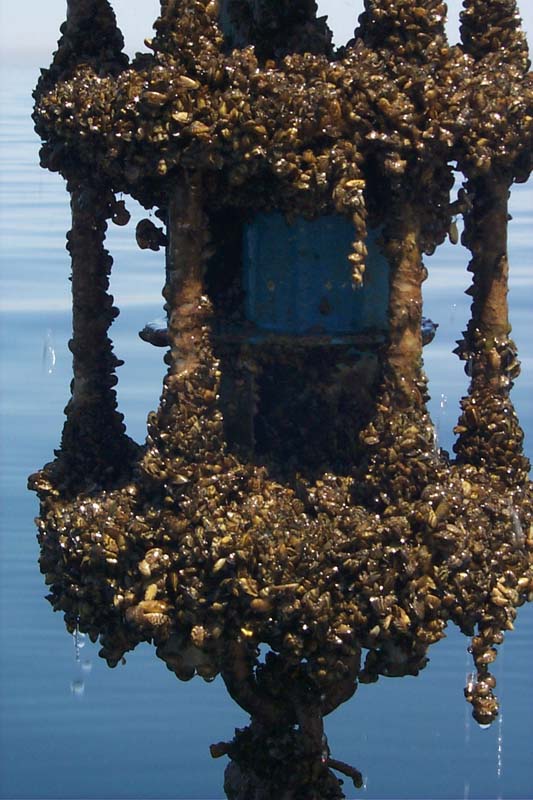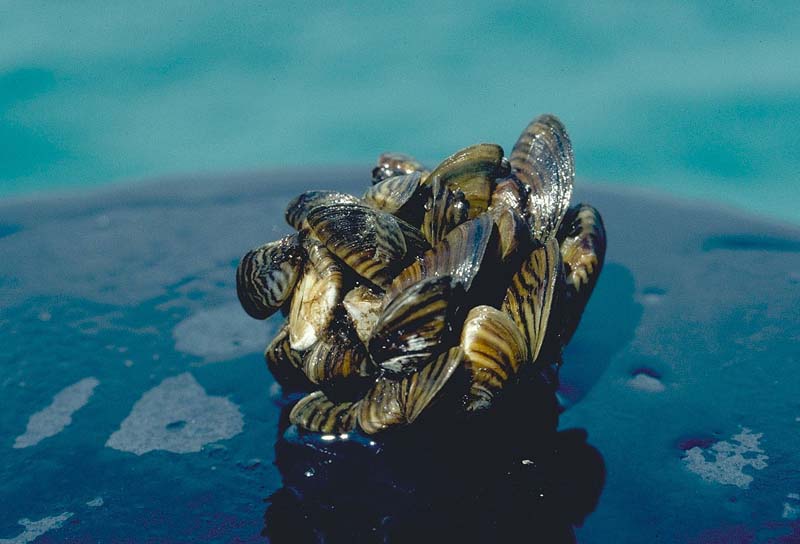Out of curiosity, I Google'd "invasive species" and looked under images to see what would be the first thing to come up. It was the zebra mussel (
Dreissena polymorpha), a species that has become infamous. The
polymorpha species epithet describes the fact that these bivalves can vary in their appearance, as shown below.
 |
| Zebra mussels with various phenotypes |
 |
| Mussels fowling equipment |
These little mussels have been devastating the Great Lakes as well as many other parts of the world. One of the serious problems they cause is the clogging of pipes and fowling of ships and other equipment found in the water (including the device at right, which is used to measure current). This is caused by the fact that they will cluster tightly together, one on top of the other using byssal threads. Pipes, ship hulls, and other equipment must be constantly cleaned both to remove the offending mussels, and in the case of small boats, attempt to prevent the spread of the mussels to other bodies of water.
Dense populations of zebra mussels also filter water incredibly quickly, and in doing so limit food available to other species and change the makeup of the plankton community in a body of water. By greatly reducing the plankton, the water becomes more clear, completely changing the living conditions for the resident species. They also will coat the bottom, benefiting some species but limiting space available to others. They have also been known to cover other species, including other bivalves and crustaceans. They often out-compete other bivalve species, and are stressing populations of the various species of endangered freshwater mussels.
 |
| A clump of zebra mussels |
They are native to Eurasia (namely the
Black, Caspian, Aral and Azov drainage basins), and were believed to have arrived at the Great Lakes in a larval form through ballast water. The zebra mussel has also been found invading waters of Scandinavia, Britain, Ireland, western and central Europe, and north-west Russia, along with other areas of North America. It appeared in California in 2008. It is currently listed at
#31 on the list of
100 World's Worst Invasives.
Images are copyright free from Wikimedia commons.




Zebra mussels are becoming a problem in the Great Lakes. Not only they have become become a nuisunence for wildife, they are also hazardeous to ships and the canals.
ReplyDeleteYep. That is very true.
ReplyDelete